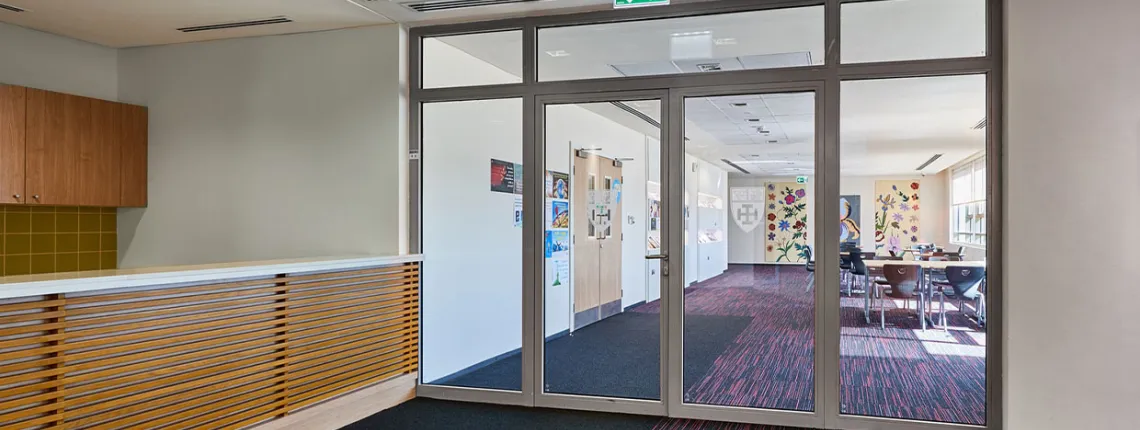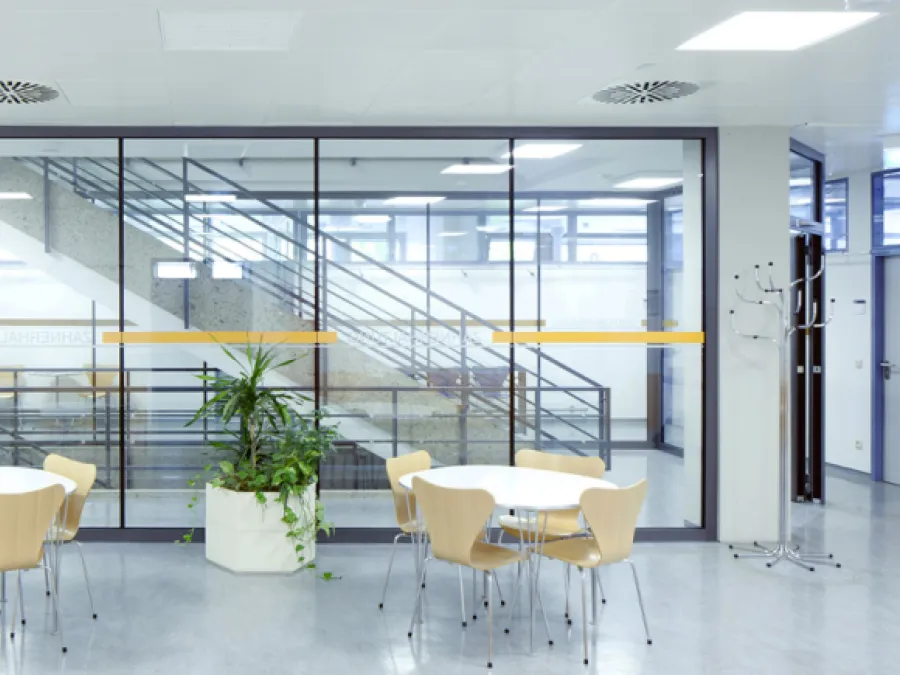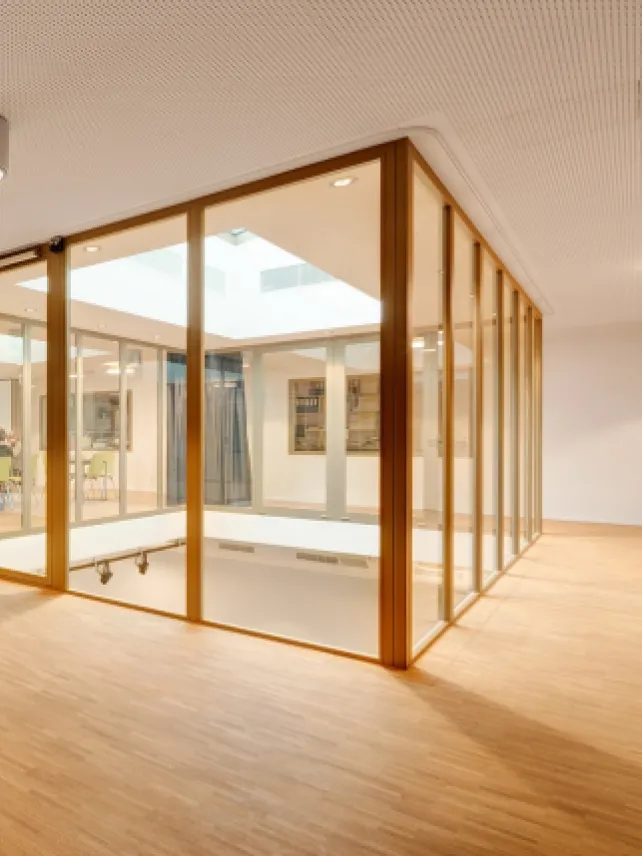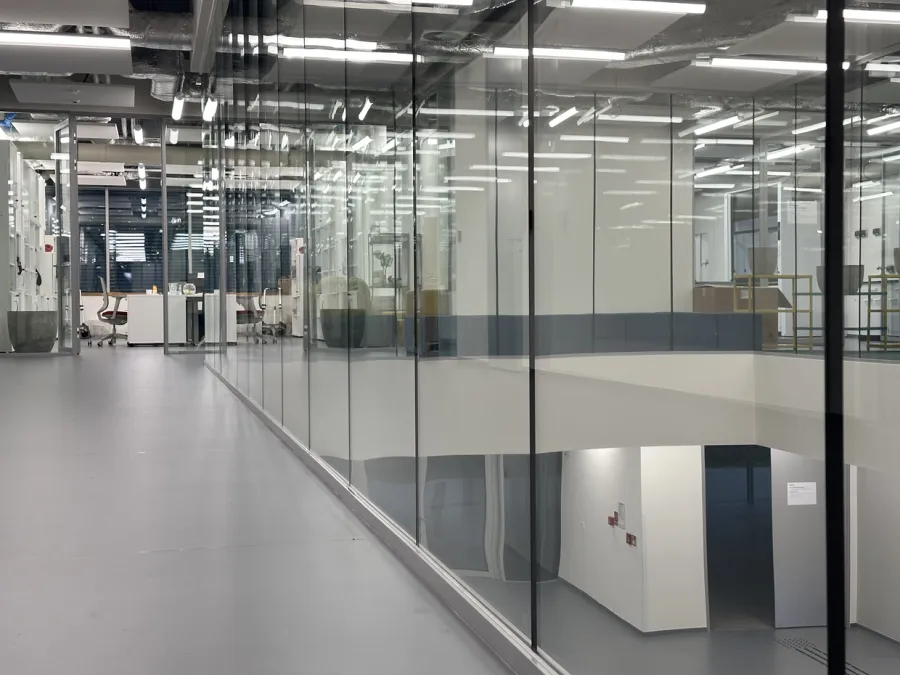Why Is Third-Party Auditing Required for Fire-Rated Glass

Fire-rated glass plays an important role in building safety. It’s specially designed to delay the spread of fire, smoke, and heat, giving people more time to evacuate safely and allowing emergency responders to act. In countries like India, where construction standards are becoming stricter, the importance of proper fire glass testing and fire-rated glass certification has never been higher.
But how can builders, architects, and safety inspectors be sure the fire-rated glass being used really does what it claims? That’s where third-party testing for fire-resistant glass becomes essential.
What Is Third-Party Testing for Fire-Rated Glass?
It’s a process where an certified organisation (not the manufacturer or the buyer) inspect and confirm the product for consistent quality, safety and performance.
In the case of fire-rated glass, these audits ensure that what’s tested is supplied in real-life projects . Third-party testing for fire-resistant glass gives builders, architects, and regulators confidence that the product has been assessed without bias.
Why Third-Party Certification Matters in Fire Safety
Here’s why third-party testing for fire-resistant glass is non-negotiable:
-
Fire resistant glasses are considered as life safety products where it cannot be manufactured and certified by the manufacturer themselves.
-
A third party body should be there to conform the quality of fire rated glasses to make sure that the tested and supplied quality are the same.
-
It ensures manufacturers adhere to the product performance quality .
-
It keeps low-quality or unsafe products out of the market
Without this layer of verification, the risk of faulty or underperforming glass increases, creating serious safety concerns.

Top Fire-Rated Glass Certifications You Should Know
Builders and developers should always look for globally recognised fire-rated glass certifications when selecting products. Here are four widely respected third-party certifications that are especially relevant for Indian projects:
- CE Marking
What it means: CE stands for Conformité Européenne, which means European Conformity. This marking shows that a product meets the safety and health rules set by the European Union.
Why it matters: Indian projects that aim to meet global standards often require CE-certified fire-rated glass. It shows the glass complies with reliable and high safety benchmarks.
- Intertek Listing
What it means: Intertek is a trusted global body that checks if products meet safety, quality, and durability standards.
Why it matters: For Indian businesses working on major projects, especially those with international collaboration, Intertek certification helps meet both Indian and global safety standards.
- Certifire
What it means: This is a third-party certification scheme widely respected in the UK and other markets. It checks performance and tracks each product back to its source.
Why it matters: Certifire gives confidence that fire-rated glass has not only been tested but also comes from a trustworthy manufacturing process. For Indian architects and engineers, this level of assurance supports safe and reliable building design.
- UL Listed
What it means: Issued by Underwriters Laboratories, UL Listing proves the product has passed a wide range of safety and performance tests.
Why it matters: UL-certified glass is often used in Indian high-rises and commercial buildings. It signals that the glass meets strict fire protection requirements, often beyond basic local codes.

The Role of Third-Party Certification Bodies
Organisations like ,TUV , Intertek, and UL act as impartial evaluators. They inspect manufacturing processes, verify performance claims, and certify that fire-rated glass complies with recognised fire safety standards.
Their responsibilities include:
-
Inspecting and sampling the glass in the factory and send it to the testing
-
Witnessing the fire testing the test lab whether the product meets the intended classification or not Auditing the factory on a periodic basis to make sure the product is produced as same as the time of sampling Performing regular re-checks to keep certifications up to date.
-
Checking traceability and quality across product batches.
Without this layer of trusted oversight, it would be hard to know which products truly offer dependable fire resistance.
How the Third-Party Auditing Process Works
For a fire-rated glass product to be certified, it must go through a series of structured steps:
-
Factory Production Control (FPC): This involves regular inspections of the entire production line, ensuring that every piece of glass is manufactured to the same safety standards.
-
Fire Resistance Testing: The glass is exposed to intense heat and fire to confirm it can withstand conditions like those in real fires.
-
Periodic Audits: Certification bodies often audit factories based on type of body to make sure nothing has changed and that production stays consistent.
-
Performance & Traceability: Each batch of glass must meet the same level of safety, and records are kept so that every sheet can be traced back to its origin.
Vetrotech’s Commitment to Fire-Rated Glass Compliance
At Vetrotech, safety isn’t just a feature; it’s the foundation.
Our fire-rated glass goes through detailed third-party auditing with recognised bodies like TÜV Rheinland and Intertek. Every step from production to testing is closely monitored to ensure the glass meets the highest fire safety benchmarks.
The VDS Certified Installer Program is an integral part of Vetrotech’s commitment to safety and reliability. It ensures that our fire-rated glass isn’t just tested and certified but also installed by trained professionals who follow strict guidelines. This means the safety performance proven in testing is consistently delivered on site, with full traceability and quality assurance at every step.
Why Fire-Rated Glass Certification Can’t Be Ignored
When lives and buildings are at stake, there is no room for shortcuts.
Third-party testing for fire-resistant glass offers a level of trust and dependability that in-house testing alone cannot match. It keeps standards high, and safety assured.
At Vetrotech, our promise is simple: Fire-rated glass that performs because it's been tested, verified, and certified.
Builders, architects, and regulators across India rely on fire-rated glass certification to ensure safer, smarter structures. And with Vetrotech’s globally audited systems, you’re choosing reliability that’s proven under pressure.

How do I know if my fire-rated glass is certified?
Look for marks from UL, CE, Intertek, or TÜV Rheinland, and request documentation from your supplier.
Does certification cover installation too?
Only if the installer is certified, like Vetrotech’s VDS program, which ensures fire-rated glass is correctly installed.
